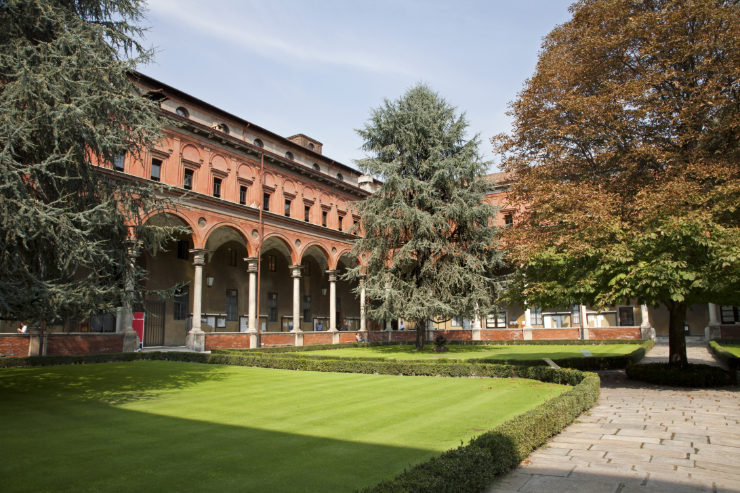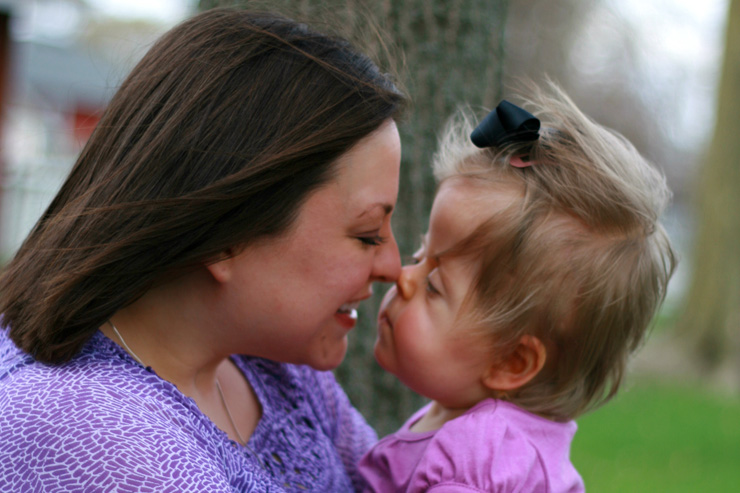What the Experts Say
It is popular for parenting magazines to publish articles with advice from child psychologists about how to raise independent kids. But what does that mean?
One psychologist tells parents in an article in Parenting Magazine titled “Flying Solo: Raise an Independent Kid” that no matter how loving they are, they are not the ones able to help children “get over fears, learn to take risks, or become more responsible.” The expert explains, “In order to grow in the ways they need to grow, children have to take the lead, and usually away from [the parents].”
Another psychologist tells parents in an article in Psychology Today titled “Parenting: Raise Independent Children” that an important goal of parenting is to “raise children who become independent and self-reliant people,” intrinsically motivated to achieve and take responsibility for their thoughts, emotions, and actions. The author contrasts “independent” children with “contingent” children who depend on others to provide them with happiness and incentive to achieve. Contingency sounds like the vice counter to the virtue of independence.
A third expert explains in an article in Disney’s Babble titled “10 Rules for Raising Independent Kids” that it is “vital” to raise independent kids who will be productive, healthy adults, people who are confident, courageous, and self-assured. Otherwise, they will be unable to function in the real world when they are older—high-schoolers who cannot keep track of school assignments, college kids who cannot do laundry. This third psychologist offers ten rules for raising independent kids: 1) Don’t always step in, let them struggle; 2) Let them experience failure and deal with it emotionally; 3) Encourage thinking through a situation and decision-making; 4) Be honest with them and do not give false praise; 5) Be a good example; 6) Set a routine; 7) Get parent time away from them; 8) Ask their opinion because it boosts self-esteem; 9) Give them chores; 10) Don’t force it and be patient.
But Is Independence a Virtue?
Independence seems like a good goal, but the up front message amounts to a tautology. “If you want independent children, encourage independence.” Independence in itself is not necessarily a virtue. No one lives free from dependency in some form or another, especially children. What is independence? Is independence not depending on another? Is it exemption from external control? Is is freedom from subjection? Is it individual liberty of thought or action? Or is it refusal to subject to rightful authority? Is it insubordination? Arguably some forms of independence are virtuous, but other forms are not. Rebellion, anarchy, and isolation are obviously not virtuous. Likewise, dependence can be healthy and legitimate, or it can be overdone and damaging, depending on the relationship. What these psychologists actually seem to be advising is “prudence” at large, and the cognitive sub-virtues that are necessary for one to be prudent. A comparison is, thus, in order.
What is Prudence?
Prudence is one of the four cardinal virtues, along with justice, fortitude, and temperance, ordered under the theological virtues of faith, hope, and love. In his classic book, The Four Cardinal Virtues: Prudence, Justice, Fortitude, Temperance, the Thomistic philosopher Josef Pieper highlighted that prudence is the “mother of all cardinal virtues” because all the other cardinal virtues depend on it. (p. 3) Without prudence, one cannot practice justice, temperance, or fortitude. But prudence also depends on the higher theological virtues, namely love from which all virtue flows. As another Thomistic philosopher Donald DeMarco began his book, The Many Faces of Virtue, “Love is the source of every real virtue.” (p. 15) Parenting magazines and child psychologists do not commonly communicate in terms of virtue and vice, but such terminology probably strikes parents as true. Why? Because parenting begins with love, of course. Independence resonates with parents because authentic independence is actually the virtue of prudence. Prudence is the ability to make right decisions. What parents need advice about, ultimately, is how to teach their children to make right decisions.
Back to the Experts
The first article said parents should expect others to help their children. It is true, parents will need the aid of others to help their children “get over fears, learn to take risks, or become more responsible.” Children will have authority figures in addition to parents. However, the article ends with advice that may not always be good. “In order to grow in the ways they need to grow, children have to take the lead, and usually away from [the parents].” In reality, it is the parent’s job to take the lead and teach the child to make right decisions.
For a child to know when to accept others as legitimate authorities, the parents have to first lay the foundation for a child to know what legitimate authority is. This requires the practice of prudence. “No virtue—obedience, courage, generosity, or anything else—is virtuous without prudence, which is the virtue of being realistic.” (DeMarco, pp. 173-174) Prudence is born of a love for truth. The child is firstly obedient to his parents because he trusts them to teach him the truth. In turn, it is good and natural for parents to expect obedience because they want to lead their child to truth.
Teaching the child prudence involves teaching him to reason, and children are not born knowing how to reason correctly. Josef Pieper, citing St. Thomas Aquinas, described “reason” and “truth” in this way.
The intrinsic goodness of man—and that is the same as saying his true humanness—consists in this, that “reason perfected in the cognition of truth” shall inwardly shape and imprint his volition and action. In this fundamental principle of Thomas Aquinas is summed up the whole doctrine of prudence.
By “reason” St. Aquinas meant the regard for and openness to reality, the acceptance of reality. By “truth” he meant the unveiling and revelation of reality, be it natural or supernatural. This may seem overly-complicated or mystical in a discussion about parenting, but the desire to teach the child about reality is a desire rooted in love, not just parental love but also love for God. The child has to learn to look beyond himself to faith, hope, and charity.
Good intentions, such as the desire for independence, are empty unless they follow through to action. Prudence is conscience in action. Independence is . . . what in action? Prudence says the parent must teach the child how to deliberate and face fears, how to judge appropriate risks, how to make responsible decisions, and how to turn those deliberations, judgments, and decisions into concrete actions that may or may not involve other people beyond the family. This is the difference in a an empty virtue and an authentic one—an authentic virtue can actually be practiced throughout life.
The mechanisms to transform true knowledge into prudent actions are: 1) deliberation, 2) judgment, 3) decision, and 4) action. (Pieper, pp. 12-13) If a person plunges into the last two, decision and action, without doing the first two, deliberation and judgment, he is thoughtless. If a person does not decide and act, but incessantly deliberates and judges, he is irresolute. Both thoughtlessness and irresoluteness are forms of imprudence. If a parent teaches the child to practice these mechanisms, then the child learns a legitimate personal freedom and independence, but independence itself is not the virtue. Other people may help a child find the courage he needs, but without prudence the child could be swayed by people who teach him a false sense of courage or bravery, or any other falsity. “Obedience needs prudence in order to be virtuous, just as a student needs a teacher in order to learn.” (DeMarco, p. 174)
The second article referred to “intrinsic motivation to achieve” as a goal for children. Because children are oriented toward God, they are naturally inclined toward learning and mastering new ethical skills, but they must be taught how to do it. Traditional Christian doctrine calls this “conscience formation.” Conscience (con scientia) means with knowledge of reality, it means to know what’s what. It is not enough to say children need to “take responsibility for their thoughts, emotions, and actions,” there needs to be a plan with specific skills. Josef Pieper, interpreting St. Aquinas, described four of them, and they are simple enough to teach a child: 1) the ability to silently contemplate reality (memoria), 2) the willingness to be open-minded to receive instruction (docilitas), 3) the ability to act swiftly with clear-sighted vision (solertia), and 4) the ability to fix the attention on what has not yet happened (providentia). (Pieper, pp. 13-22. Aquinas, Summa Theologiæ, II-II, 48)
Memoria does not merely refer to memory, but to true recollection, to remembering events as they were or are, and it requires an ability and willingness to be silent and think things through honestly. (Pieper, p. 14) As obvious as that is, it is rarely specifically addressed. This ability to remember honest facts, for anyone of any age, is the deepest root of forming a conscience. It is to teach a child not to falsify his memory, not to leave out what is difficult or uncomfortable to remember or confront. For example if a child has a conflict with another child, the first step in helping him work out a plan for his future behavior is to help him remember the reality of the confrontation. What was his role in the conflict? What was the conflict really about? Was a confrontation unprovoked? Or was it justifiable, albeit poorly executed because of emotions? There is a real danger in remembering things incorrectly; it can happen without being noticed, a mental block against something self-effacing. A child needs to learn to honestly remember what objectively happens in the real world, without coloring it, retouching it, omitting certain facts, or rearranging how things happened. Is it easy? Not always. Is it necessary for making good decisions? Yes, good decisions cannot be based on error.
Knowledge of the past is called “memory” but knowledge of the present is called “understanding.” (II-II, Q.48, Art. 1) These are intellectual virtues. Docilitas refers to understanding; it means docility. Docility does not merely mean to be a pliant pupil. A docile person has an open-mindedness to recognize a variety of things, to not cage his intellect with presumption. (Pieper, pp. 16-17) For a child, it is the ability to receive instruction and search for understanding. It necessitates the virtue of humility and the willingness to be silent. A talkative know-it-all is perpetually closed-minded. (Pieper, p. 16) DeMarco points out that the words “doctor” (teacher), “doctrine,” (body of knowledge), and “docility” (willingness to be taught) are connected. (DeMarco, p. 19-22) Without any one of those things, the others cannot exist. The teacher cannot teach without an authentic body of knowledge to teach. The docile person wants to know the truth; the mark of the docile person is the willingness to be taught it and, having grasp it, to close the mind on it. Laziness and pride are obstacles to the virtue of docility. Docility is distinctly not independence. It is a legitimate dependence, necessary for the transfer of knowledge to children.
Solertia is the ability to confront sudden events with decisiveness, to keep the mental eyes open and to think swiftly when swift thinking is needed, to not take blind action. (Pieper, pp. 16-17) Traditionally this was also called “shrewdness,” but the definition has negative connotations today. The traditional meaning of shrewdness was “sagacity or keenness of mental perception, discrimination, astuteness in practical affairs.” (OED) Teaching a child to be shrewd, in this traditional sense, means to teach him to search for the truth in his circumstances, and then to push himself to use that knowledge to make a wise decision.
Providentia is the ability to realize that even when a decision is made and a plan of action is formed, there remains an uncertainty about future events. “The prudent man [or even child] does not accept certainty where it cannot exist, nor on the other hand does he deceive himself by false certainties.” (Pieper, p.18) It means to teach a child to have foresight, to decide and act to the best of his ability, and to accept that even good decisions and actions do not guarantee future outcomes. He will need to continue to practice prudence. If he fails, he will need to learn from it and to keep trying.
In the example of a conflict with another child, not only should the parent help the child to face the true-to-being memory of the conflict and ancillary circumstances, but the parent should also help the child gain an understanding of the nature of conflict in general. Then the parent should push the child to think about what he should do next. Is it prudent to wait a few days to calm down? Is it prudent to apologize for his own wrong-doing or misunderstanding? Is it prudent to give the other child the benefit of the doubt? Is it prudent to avoid any further contact with the child? Is it prudent to involve an authoritative third party? Is it prudent to fight back? And then, what might happen next? What should be done if X, Y, or Z?
Prudence is appropriately named the “mother of all virtues.” This is how Josef Pieper summarized St. Aquinas’ words.
Prudence, then, is the mold and mother of all virtues, the circumspect and resolute shaping power of our minds which transforms knowledge of reality into realization of the good. It holds within itself the humility of silent, that is to say, of unbiased perception; the trueness-to-being of memory; the art of receiving counsel; alert, composed readiness for the unexpected. (Pieper, p. 22)
The third article claimed it is “vital” to raise “independent” kids. It might be better to claim it is vital to raise prudent kids so they will turn into productive, healthy adults able to function in the “real world.” Yes, the secret is not to hover over them all the time, but neither is the secret to encourage independence in and of itself. The ten rules for raising independent kids might be re-written as such for raising prudent kids:
1) Instead of, “Don’t always step in, let them struggle,” try saying, “Step in often and deal with fundamental questions about objective reality.”
2) Instead of, “Let them experience failure and deal with it emotionally,” try saying, “Help them face failure and deal with it honestly.”
3) Instead of, “Encourage thinking through a situation and decision-making,” try saying, “Guide them through remembering real events and gaining new knowledge, and then push them to decide how to handle it.”
4) Instead of, “Be honest with them and do not give false praise,” try saying, “Teach them why it is important to be honest with yourself before you decide how act.”
5) Instead of, “Be a good example,” try saying, “As you practice prudence, take time to explain to your child how you are working through difficult situations in your life.”
6) Instead of, “Set a routine,” try saying, “Learn to think and practice virtue in an ordered way.”
7) Instead of, “Get parent time away from them,” try saying, “Be prudent about how you spend your time.”
8) Instead of, “Ask their opinion because it boosts self-esteem,” try saying, “Help them ask questions of themselves because it boosts confidence to practice virtue.”
9) Instead of, “Give them chores,” try saying, “Teach them the other virtues of courtesy, determination, fidelity, generosity, graciousness, gratitude, humility, integrity, meekness, patience, reverence, and sincerity. (DeMarco, The Heart of Virtue)
10) Instead of, “Don’t force it and be patient,” it is better to remind a parent that virtue cannot be forced.
Be Your Child’s Best Friend
Teaching a child to practice virtue builds the relationship between parent and child. Because genuine practice of prudence begins with an interior examination, there is no way to know the soundness of another person’s ethical decision completely from the outside. (Pieper, 29) Even a parent cannot know a child’s heart and mind fully, be that child toddler or adult. The most a parent can do is to shape the child’s decision. This fact reveals something significant about the parent-child relationship, a paradox of true freedom—letting go while maintaining mutual dependency.
Parents often hear the admonishment that they should not be “friends” with their children, but actually, in the true sense of friendship, a parent should be a young child’s best friend. The only certain way to influence virtue in another person, even a child, is through the love of friendship. A friend, and only a prudent friend, can guide a friend’s decision by the virtue of love. (Pieper, p. 29) Love makes the friend’s problem the other’s problem. In this embracing virtue of oneness which love can establish, a friend is able to visualize the concrete situation calling for a decision, and visualize his friend’s responsibility as if it were his own responsibility. One has but to substitute parent and child in the place of friend and friend—a mutual and loving dependency between independent individuals—for the truth of that statement to strike a chord in the heart.















